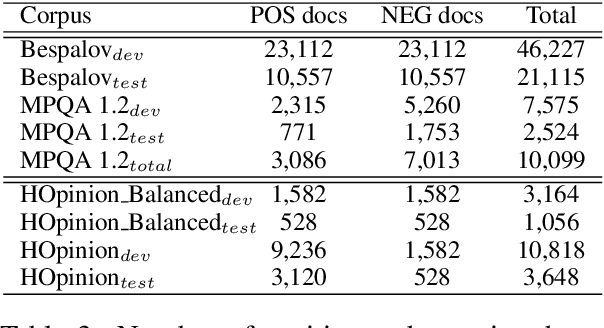Q-WordNet PPV: Simple, Robust and Unsupervised Generation of Polarity Lexicons for Multiple Languages
Paper and Code
Feb 06, 2017



This paper presents a simple, robust and (almost) unsupervised dictionary-based method, qwn-ppv (Q-WordNet as Personalized PageRanking Vector) to automatically generate polarity lexicons. We show that qwn-ppv outperforms other automatically generated lexicons for the four extrinsic evaluations presented here. It also shows very competitive and robust results with respect to manually annotated ones. Results suggest that no single lexicon is best for every task and dataset and that the intrinsic evaluation of polarity lexicons is not a good performance indicator on a Sentiment Analysis task. The qwn-ppv method allows to easily create quality polarity lexicons whenever no domain-based annotated corpora are available for a given language.
* Proceedings of the 14th Conference of the European Chapter of the
Association for Computational Linguistics (EACL 2014), pages 88-97,
Gothenburg, Sweden, April 26-30 2014 * 8 pages plus 2 pages of references
 Add to Chrome
Add to Chrome Add to Firefox
Add to Firefox Add to Edge
Add to Edge